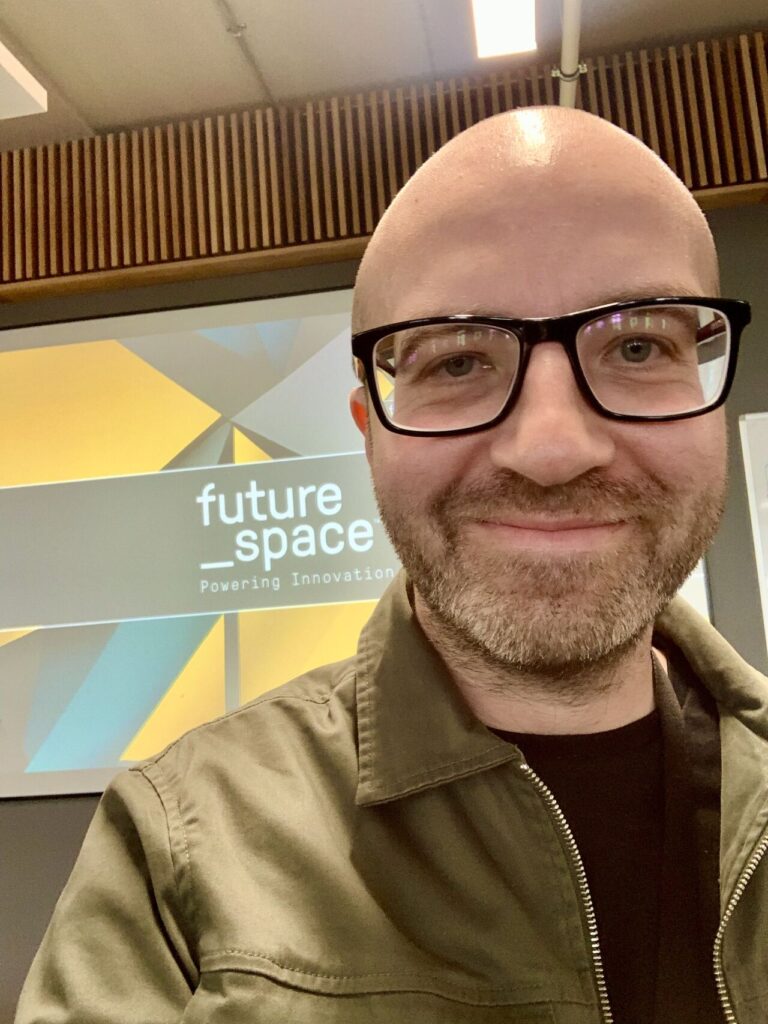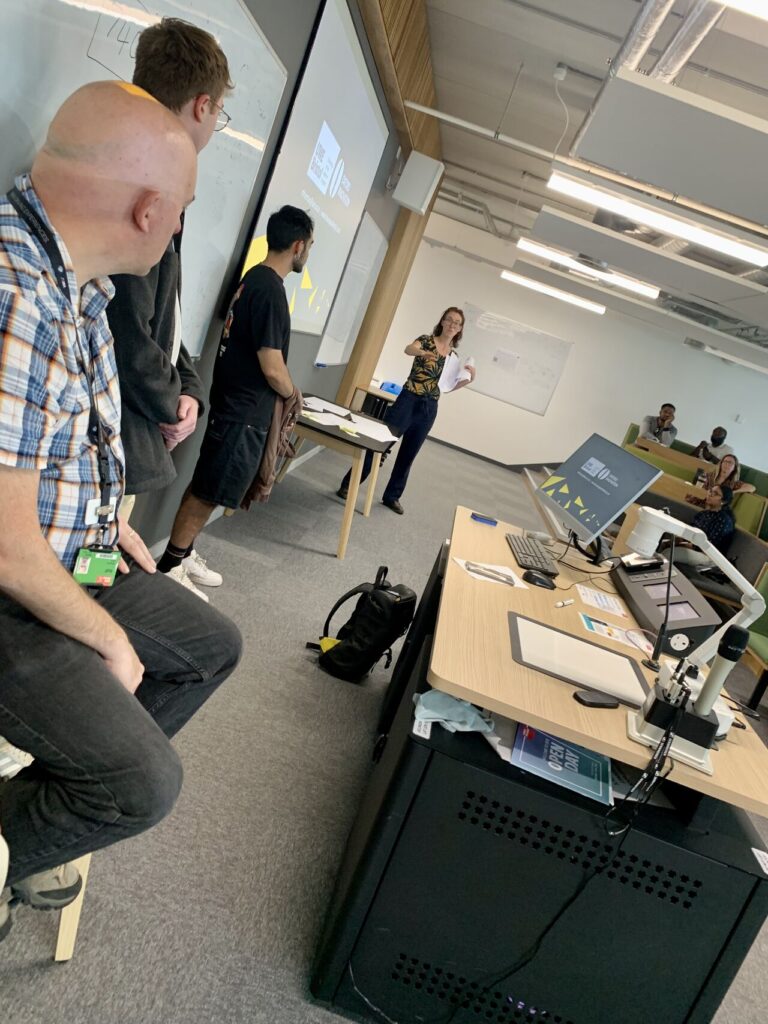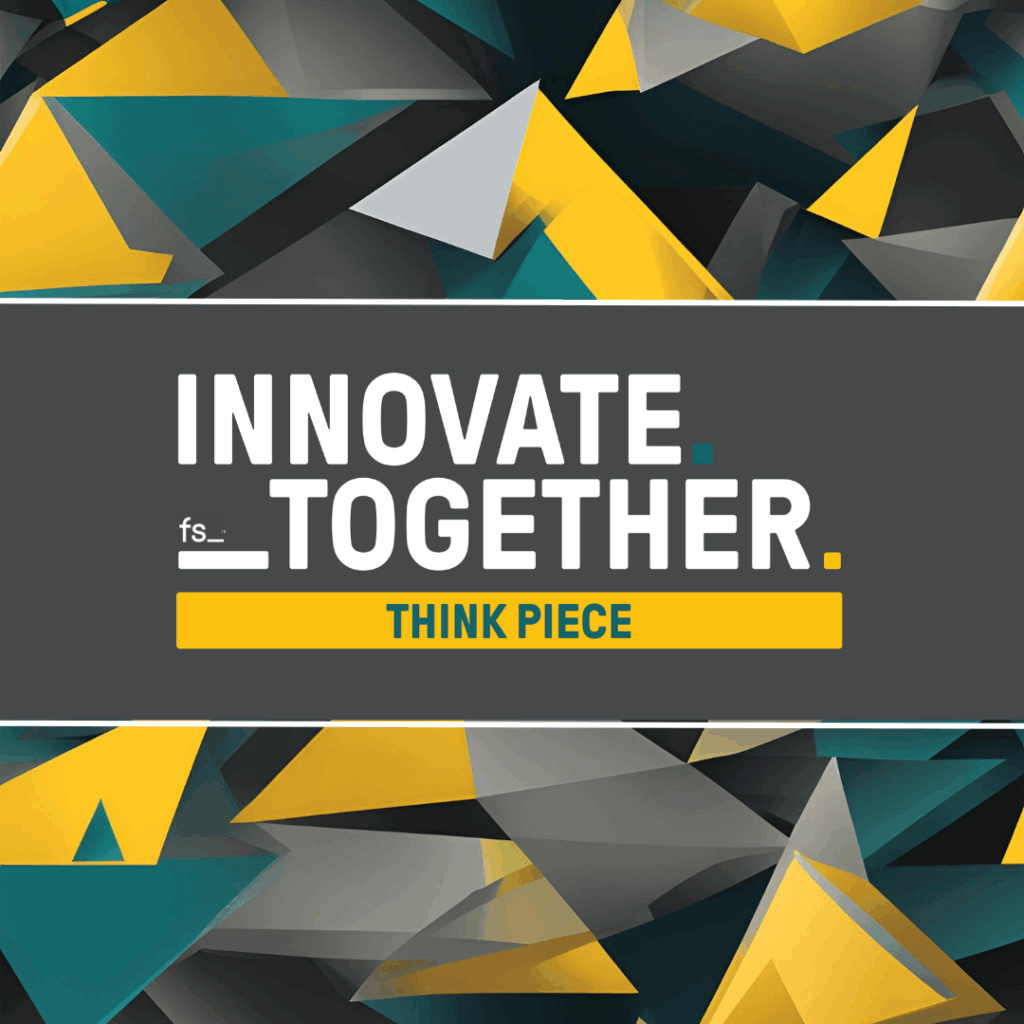Over the course of the next month I’ll be using this forum to post a three-part blog about the successes and impacts of Future Space over the past academic year – watch this space! In anticipation, this month I want to return to one of the most powerful ways we’ve made these impacts happen, namely by watching student consultancy projects play out, with students tackling real-world challenges set by our businesses and delivering value back to startups.
But a question I’m often asked is: what makes these projects successful?
This year we worked closely with UWE’s School of Engineering on a range of postgraduate projects that led not only to a strong final product, but to a whole new startup being formed by the students. So I went off and captured some reflections from both academics and businesses involved in the projects. Here’s what they had to say – and what others can learn.

Start with a clear brief – but keep room for exploration
Not all student consultancy projects are created equal. While some are open-ended, the most effective ones often begin with a focused, specific brief from the business.
“This project was different from others. The company was very clear about what they wanted – this meant the student had defined goals, which allowed them to go deeper into the technical detail that industry actually cares about.” — Dr Ben Drew, UWE Bristol
That focus, however, shouldn’t come at the expense of creative thinking. In this project, students initially proposed overly technical solutions that were unfeasible for the company’s budget – until they gained real-world insight through collaboration.
“They had to ‘jump into reality.’ They started with fancy ideas, but soon had to design within a real budget. That learning curve was steep – but valuable.” — Dr Ben Drew, UWE Bristol
Keep the business engaged – not just at the start
One of the key success factors was sustained communication between the students, academics, and the company throughout the project.
“The business joined us for one-hour meetings once a month. That kept them in the loop—and ensured we were always aligned with what they really needed.” — Dr Alessandro Pontillo, UWE Bristol
“We invited the company to the final degree show and even afterwards, they brought the students in to present more about the project. That kind of continued involvement was great for everyone.” — Dr Ben Drew, UWE Bristol
Regular engagement helped students course-correct and build something useful – paving the way for further collaboration.

Plan rigorously, then flex together
For academics, aligning university schedules with agile startup timelines can be tricky – but it’s essential.
“We need to do as much upfront planning as possible. Our assessment deadlines are fixed, but startup timelines are more fluid – so being honest and upfront about dates and deliverables is vital.” — Dr Fabia Jeddere-Fisher, UWE Bristol
And startups can help too, by staying flexible and responsive, understanding that students are learning as they go, and academics are balancing complex workloads.
Be honest about expectations – and outcomes
One theme that came up time and again? Transparency.
“It’s not about underselling our students, but it’s fair to set expectations. A startup isn’t going to get a £20k consultancy for free – but they will get value, energy and ideas.” — Dr Fabia Jeddere-Fisher, UWE Bristol
Being realistic about the output helps both sides get the best from the project – and manage time and effort accordingly.
Don’t just set the brief – get inside the problem
Startups are encouraged to think beyond just providing a written brief.
“Try to integrate with the students. Let them ask questions – lots of them. They need to understand the problem from your point of view. Help them get into your mindset.” — Chris Jenkins, Uplift360
“We want students to ask us tough questions. Don’t hold back – get the details right. That’s how you get a useful outcome.” — Chris Jenkins, Uplift360
Encourage real-world application – and entrepreneurial thinking
This project had a powerful legacy: a group of students were so inspired, they started their own company, developing energy efficient tilting technology for narrow vehicles.
“They ended up forming a company – TilTech – based on their project. Each is contributing an initial £4,000. The whole idea came from their business analysis during the consultancy.” — Dr Alessandro Pontillo, UWE Bristol
These projects aren’t just academic exercises – they can spark real innovation and real ventures.
Final tips from those involved
Here’s a summary of my top tips for making student consultancy projects work effectively:
For academics:
- Define the brief clearly – but allow room for curiosity.
- Set honest expectations around quality, timelines and constraints.
- Keep businesses engaged throughout – not just at the beginning and end.
- Be prepared to flex and communicate openly.
For startups:
- Be accessible. Attend student meetings regularly, even briefly.
- Let students ask questions – don’t shield them from complexity.
- Share your constraints and budget upfront – it makes the work more realistic.
- Stay open to outcomes you didn’t expect. These projects can surprise you.
Ready to collaborate?
If you’re a Future Space business curious about partnering with UWE students – or you’re an academic looking to bring industry problems into the classroom – get in touch with our team. Student consultancy projects are a powerful way to bridge the gap between theory and practice, while building the innovation pipeline of the future.
Let’s keep building something real – together.

